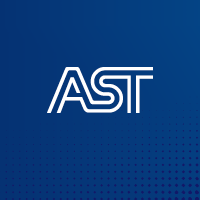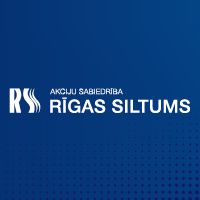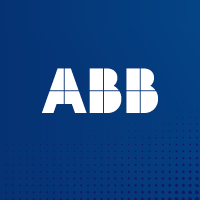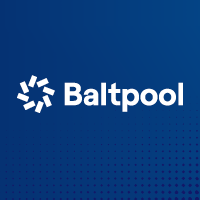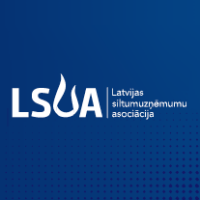About the event
Latvia is currently at a crucial crossroads in its energy transformation. The progress made so far in strengthening energy security, stability and sustainability demonstrates the country’s ability to strategically move towards energy independence. Yet important questions remain: is this enough to ensure long-term competitiveness, affordable tariffs and compliance with climate objectives – particularly in the heating sector, where challenges abound?
Discussions on the revised Renewable Energy Directive are intensifying, as European policymakers are preparing to introduce stricter sustainability and risk assessment criteria, with particular emphasis on limiting the use of primary wood biomass in energy production. According to CSB data, the consumption of wood chips in Latvia remained unchanged in 2023 and 2024, accounting for 50.9% of the sector’s energy resources. At the same time, the use of wood residues in 2024 increased by almost half compared to the previous year. If these requirements are adopted, what will be the impact on Latvia’s energy production and consumption market?
District heating systems currently supply heat to more than half of Latvia’s population. Significant steps have already been taken to enhance the sector’s sustainability—renewable energy sources now account for a larger share, energy wood has replaced fossil fuels in heat supply, biomethane is being gradually integrated into the gas transmission network, and heat pumps are being deployed more widely. At the same time, modernization of infrastructure and integration of new technologies require substantial investment and a flexible tariff policy to ensure that the transition is both accessible and fair to end users.
Consumers expect three things from the industry: safety, stability and affordability. The challenge lies in reconciling these expectations with EU climate objectives, national policies and the operational realities of heat producers. Industry representatives stress that state policy is critical. A clear regulatory framework, transparent support programmes and predictable tariff regulation are essential conditions for companies to invest. Without national guidance and effective use of EU funds, the transition to climate-neutral heating will not be possible. At the same time, it is the state’s responsibility to guarantee that the transition is socially just – ensuring that the costs of innovation are not borne solely by consumers.
The technologies introduced and the decisions taken today will define Latvia’s competitiveness in five to ten years. Will the country become a Baltic leader in climate-neutral and modernized heating, or risk falling behind by clinging to outdated systems and losing consumer trust?
The choice is clear: moving towards smart, green and competitive heating. This is an opportunity to simultaneously achieve climate goals, ensure affordable tariffs, strengthen the competitiveness of the Latvian economy and create an environment where new technologies deliver benefits for everyone.
To discuss the future direction of the heating and energy sector, the publishing house Dienas Bizness invites energy policymakers and decision-makers, manufacturers, innovators and consumer representatives to the conference “District Heating and Energy Technologies 2025.”
KEY TOPICS:
- Climate-neutral heating objectives and public policies;
- The role of municipalities and businesses;
- Electricity and technology integration;
- Innovative solutions for the future of energy;
- Tariffs and social balance.
DATE: November 13, 2025, 10:00–17:00
VENUE: ATTA CENTRE, Krasta Street 60, Riga
LANGUAGE: Latvian and English (simultaneous translation provided)
PARTICIPANTS: policymakers and decision-makers in the climate and energy sector, representatives of executive bodies and municipalities, producers and suppliers of heat and electricity, representatives of energy-intensive industries, industrial manufacturers, building managers, real estate developers, representatives of financial and development institutions, and investors.
OBJECTIVE: to look for opportunities and solutions to the challenges of the sector for the development of an economically justified and socially just thermal energy sector in Latvia.
CONFERENCE PARTICIPATION ( in person )
Participation fee per person: EUR 300 + VAT
For ABB, AS “Augstsprieguma tīkls” or AS “RĪGAS SILTUMS” corporate clients and partners participation with 15% discount: EUR 255 + VAT
Register HERE or by scrolling down the page.
More information:
Santa Butāne
+371 26132470 | santa.butane@db.lv
Agenda
09.00-10.00 | Registration and morning coffee
10.00-10.05 | Conference opening remarks
ARMANDA VILCIŅA, Journalist, “Dienas Bizness”
10.05-10.15 | Opening speech. Latvia on the Path to Climate-Neutral District Heating: Goals, Reality and the Way Forward
KASPARS MELNIS, Minister for Climate and Energy
10.15-10.30 | The Sustainability Course: Goals, Challenges and Support for the Sector
OLGA BOGDANOVA, Deputy State Secretary for International and Climate Policy Affairs, Ministry of Climate and Energy
10.30-10.45 | Beyond Trading: Adding Value at Every Step of the Biomass Supply Chain
SVETLANA KAVINA, Business Development Manager, UAB “Baltpool”
10.45-11.00 | Sustainable Heat Production and Supply in Riga and the Greater Riga Area
RAIVIS ELLIŅŠ, Member of the Board, AS “RĪGAS SILTUMS”
11.00-11.15 | Challenges of Tariffs, Investments and Social Balance on the Road to Climate-Neutral Heating in Latvia
ALDA OZOLA, Chairwoman of the Board, The Public Utilities Commission of Latvia
11.15-11.55 | Discussion. Diverse Heat Supply – How to Balance Development and Tariffs?
- ALDA OZOLA, Chairwoman of the Board, The Public Utilities Commission of Latvia
- INA BĒRZIŅA-VEITA, President, Latvian Heating Companies Association
- MĀRIS KĀNĪTIS, Managing Director, SIA “Adven Latvia”
- ANDRIS VANAGS, Country Manager of Gren in Latvia
11.55-13.00 | Lunch and networking
13.00-13.15 | Reducing Costs and Emissions for Industrial Heat Consumers
JĀNIS BETHERS, Vice President for Business Development, Rondo Energy
13.15-13.30 | The World’s Largest Sand Battery: Finland’s Experience in Decarbonizing District Heating
MARKKU YLÖNEN, CTO, “Polar Night Energy”
13.30-13.45 | The Power of Renewable Energy in Industry
RAIVIS ŠIRMELIS, Project Sales Manager, SIA “Adven Latvia”
13.45-14.00 | The Latest Microsoft Project with a Latvian Signature: How a Data Center Will Heat Three Finnish Cities
DAŅIILS DEREVŠČUKOVS, Head of HVAC Department, SEP
14.00-14.40 | Discussion. Transformation or Extinction – From a Single Boiler to Complex Systems: The Heating Puzzle in the New Energy Era
- ILZE SILIŅA, Head of Functional Department, SIA ”Salaspils Siltums”
- SANDRA ŠLIHTE, Director and Founder, Cleantech & Energy SIA
- RAIVIS ELLIŅŠ, Member of the Board, AS “RĪGAS SILTUMS”
14.40-15.15 | Coffee break and networking
15.15-15.30 | Opening the Electricity Balancing Market in Latvia – Lessons Learned and Untapped Potential
GATIS JUNGHĀNS, Member of the Board, AS “Augstsprieguma tīkls”
15.30-15.45 | The Role of Aggregation in the Energy Transition – Opportunities for District Heating Companies
TARVO ÕNG, CEO, “Fusebox”
15.45-16.00 | Case study. The First Industrial Heat Pump in Latvia
KRISTAPS DĪRIŅŠ, Energy Projects Director at AJ Power Corporate Group
16.00-16.15 | Smart heating in an electrified world – redefining the conventional approach
KLĀVS ZĀRDIŅŠ, Head of Electrification Division, ABB Latvia
16.15-16.55 | Discussion. Can Electrification and New Technologies Strengthen the Competitiveness and Sustainability of District Heating Companies in the Energy Transition?
- GATIS JUNGHĀNS, Member of the Board, AS “Augstsprieguma tīkls”
- KRISTAPS DĪRIŅŠ, Energy Projects Director at AJ Power Corporate Group
- RENĀRS URBANOVIČS, Member of the Board, SIA “Utilitas Wind Latvia”
- KASPARS FRIŠFELDS, Member of the Board, SIA “Liepājas enerģija”
16.55-17.00 | Closing remarks

